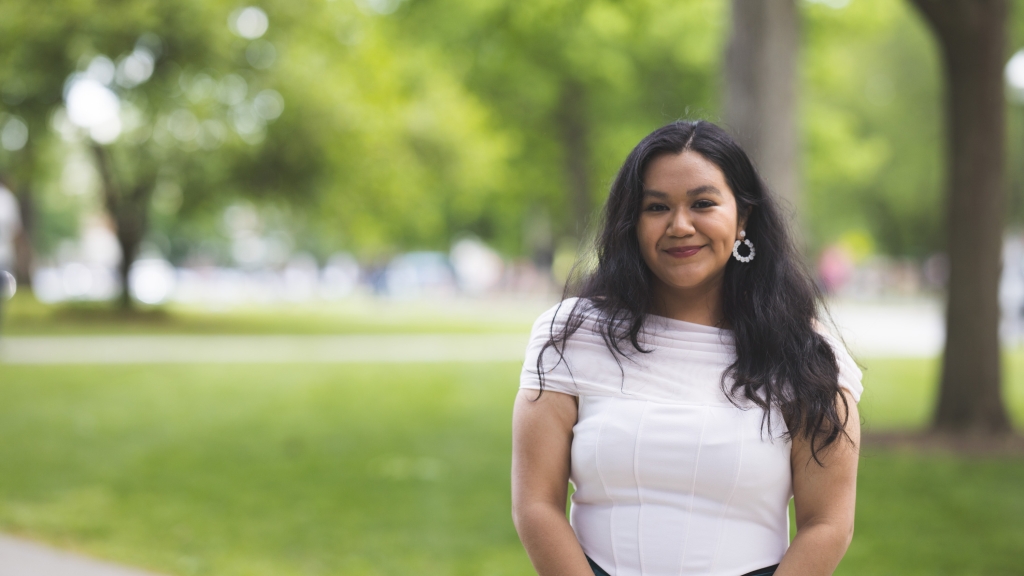Melissa Reyes '25, a double major in history modified with geography and Latin American, Latino, and Caribbean studies, has been named a Beinecke Scholar—one of 19 college juniors nationally to receive this year's award.
The Beinecke scholarships, a program of the Sperry Fund, support the "graduate education of young men and women of exceptional promise," providing $4,000 prior to the scholars entering a graduate program and an additional $30,000 while they are attending graduate school, according to the program website.
Reyes, who is from Passaic, N.J., says she is honored that Dartmouth nominated her for the highly competitive award and that the Beinecke program selected her.
"As a first-generation high school and college student, this achievement means so much to me and my family as I pursue graduate school. It also empowers me to continue centering Latinx communities in U.S. history," Reyes says.
"This scholarship will allow me to dedicate more time to my studies and to engage more deeply with other students and the communities I am part of," says Reyes, who serves as co-director for the FUERZA Farmworkers' Fund, a mutual aid organization helping migrant farmworkers in the Upper Valley. The organization was honored with a student organization award at this year's Social Justice Awards ceremony.
Since the first Beinecke scholarships were awarded in 1975, 15 Dartmouth students have been selected. Reyes is the first recipient since 2021, says Christie Harner, assistant dean of faculty for fellowship advising.
"Drawing on her bilingual skills in Spanish and English and her extensive training in archives, Melissa is pursuing original research on the role that Latinos have played and continued to play in the U.S.," Harner says. "An exceptional student, she is someone who fights to create spaces of intellectual community and inclusion, and as a Beinecke Scholar, she will make Dartmouth proud."
Reyes, a Mellon Mays Undergraduate Fellow, a Presidential Scholar and an undergraduate research assistant for Matthew Garcia, the Ralph and Richard Lazarus Professor of History, Latin American, Latino, and Caribbean Studies and Human Relations, says her passion to deepen her understanding of Latino communities and immigrant labor organizing in the United States was powerfully supported at Dartmouth.
"In high school, I did not feel represented in my history classes," Reyes says. "Taking Latin American, Latino, and Caribbean Studies courses here in the only LALACS department in the Ivy League has allowed me to engage further in learning more about Latina/o/e social movements in the United States and the Global South."
She also credits the mentoring of Professor of History Annelise Orleck in helping her think about graduate school and the kind of academic she aspires to be.
"I look up to her as a role model, understanding the importance of engaging beyond the classroom. Currently, I am conducting an independent study with her on immigration and labor histories in New Jersey. She is helping me critically engage with various frameworks for my thesis," Reyes says.
After Dartmouth, Reyes plans to pursue a PhD in history, focusing on Latino communities and immigrant labor organizing in the United States.
For information about applying for Beinecke Scholarships and other opportunities, visit Dartmouth's Fellowship Advising Office.
